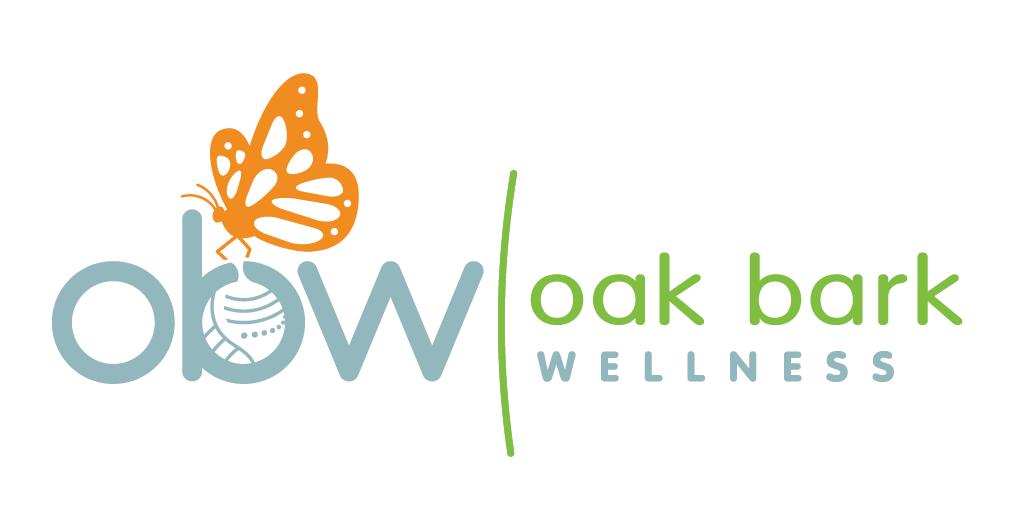Oak Bark Wellness
Tounge Ties, Lip Ties, and Frenectomies

Laser Dentistry
Laser dentistry is a minimally invasive option if you are facing gum surgery or cavity treatment; in some cases, it’s an option in other oral issues. The dentists at Oak Bark Dental will educate you on laser dentistry options as you would like.
What is a tongue tie?
A tongue tie occurs when the thin membrane under the baby’s tongue (the lingual frenulum) restricts the movement of the tongue. All babies are born with some of this tissue, but for approximately 5-12% of newborns, it is so tight that they cannot move their tongues freely. This can affect their ability to breastfeed and lead to poor latch, nipple pain and trauma, decreased milk intake, and a decline in milk supply over time. The medical term for tongue tie is “ankyloglossia” and studies show the defect is hereditary.
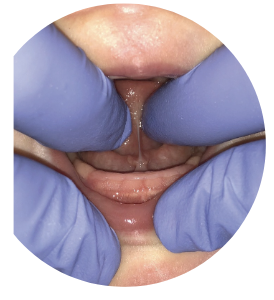
What is a lip tie?
Many babies with a tongue tie, also have an abnormally tight membrane attaching their upper lip to their upper gums (the labial frenulum). This is called a lip tie. Babies with a lip tie often have difficulty flanging their lips properly to feed and cannot create a proper seal at the breast. This can cause them to take in excess air during breastfeeding, which often makes these babies gassy and fussy.
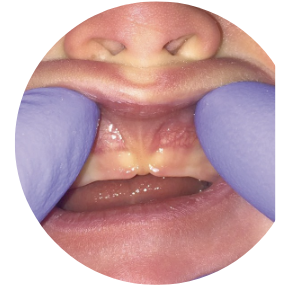
The photos on this page are only examples of ties – NOT ALL TIES LOOK THE SAME. It takes an experienced provider to thoroughly investigate tongue function and symptoms associated with each tie, and to take into account the variations of its clinical appearance.
How and why do ties affect breastfeeding?
The mobility of the tongue is very important during breastfeeding, both for the mother and the baby. A baby with a tied tongue may not be able to latch deeply onto the breast, past the nipple onto the areola. This compresses the nipple onto the hard palate in the baby’s mouth, leading to nipple pain and skin breakdown for the mother. A tongue tie often accompanies a high palate, which also decreases the suction and further reduces milk transfer.
Babies with ties may not maintain a latch for long enough to take in a full feeding, while others may remain attached to the breast for long periods of time without taking in enough milk. Some infants will feed only during the mother’s milk ejection reflex, or “let-down” when the milk ejects more freely, but will not continue to draw milk out of the breast when this slows. Bottle feeding allows milk to drip into the mouth without effort, thus requiring less tongue muscle effort than is needed for breastfeeding.
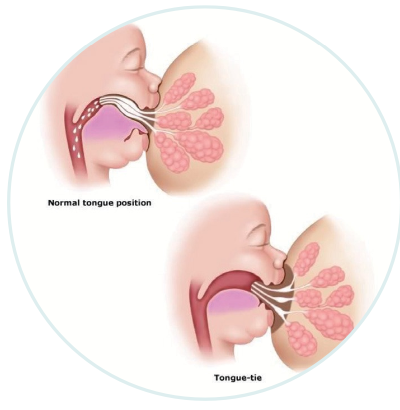

How are tongue and lip ties diagnosed?
Tongues and lips are only considered to be tied if their “movement is restricted, impairing mobility. Correct examination of infants requires the infant to be placed on the examiner’s lap with the infant’s head facing the same direction as the person evaluating the infant.
It is important to note that not all ties cause problems and require correction. Each case needs to be assessed by an educated and trained practitioner on an individual basis.
Tongue tie is a diagnosis based on function, so what your baby’s tongue looks like can sometimes be less important than how it can move.
Signs and symptoms of tongue and lip ties:
Some babies with tongue ties and lip ties are able to attach to the breast and suck well. However, many of these infants have breastfeeding problems. The following signs are common amongst infants with tongue and lip ties and their mothers. However, it is important to note that these signs can be linked to other breastfeedingproblems and are not solely related to ties.
Mothers may experience:
• flattened nipples after breastfeeding • nipple pain and damage
• prolonged feedings
• poor breast drainage
• decreased milk production
Infants may exhibit:
• noisy suckling or clicking
• popping on and off the breast
• leaking on the sides of the mouth
• poor weight gain
• coughing or gagging
• lip blisters
• gas pain
• noisy breathing/snoring sounds when sleeping • reflux or colic symptoms
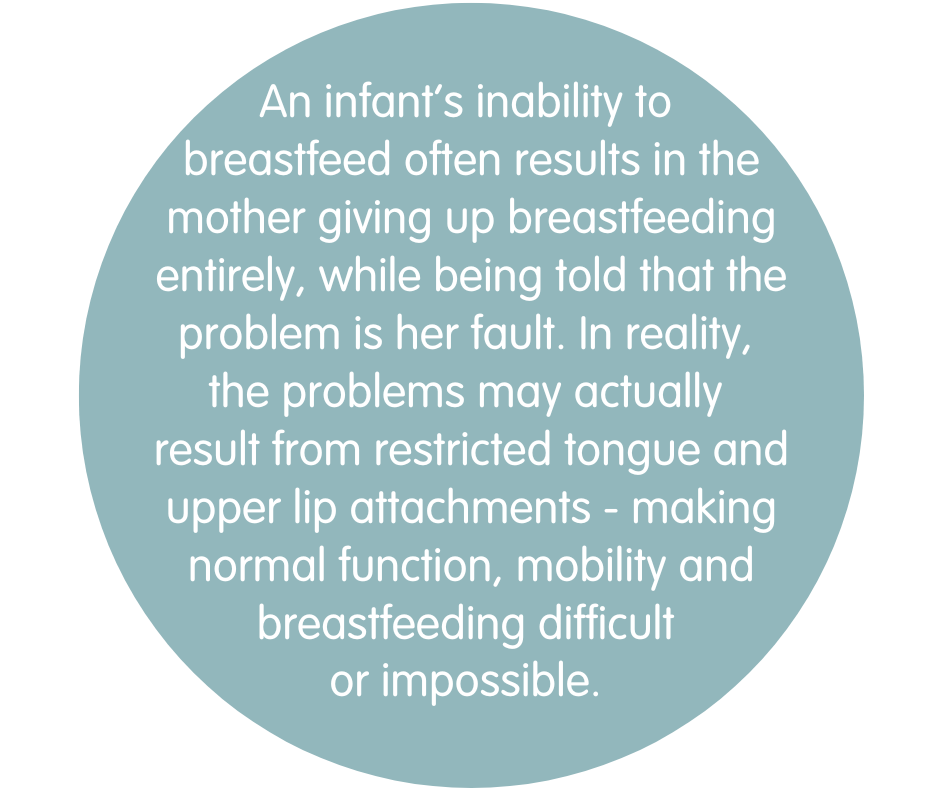
Lactation Consultation
If you’ve recently had a baby, congratulations! Our trained lactation consultant, Susie, would love to meet you. Every mom and baby have a special bond, and the relationship between them while breastfeeding can be a new experience. During your lactation consultation, you will discuss the specific needs for you and your baby, pregnancy and delivery, weight changes of your baby, and how you can meet your breastfeeding needs and goals.

If you suspect your baby has a tongue tie or lip tie that is causing breastfeeding problems, please contact us!
Our Team & Approach:
Our team feels that post-op care is important to the success of the release. Essentially, the baby must learn how to use his or her tongue in a new way. Some babies need no help at all and immediately breastfeed post- procedure, while other babies may need help from additional professionals.
- An International Board Certified Lactation Consultant (IBCLC) provides full feeding observation, latch/ position adjustment, suck assessment, pre and post feeding weight checks and strategies for correcting problems and managing breastfeeding.
- A speech or developmental feeding therapist can help babies learn to use their tongues for more effective eating and speech.
- A craniosacral therapist, osteopath, chiropractor, an occupational or physical therapist can help babies to release tight muscles that have compensated for a tight frenulum or improper suck. Bodywork encourages an infant to express postural reflexes and explore natural movement inclinations through the nervous system.
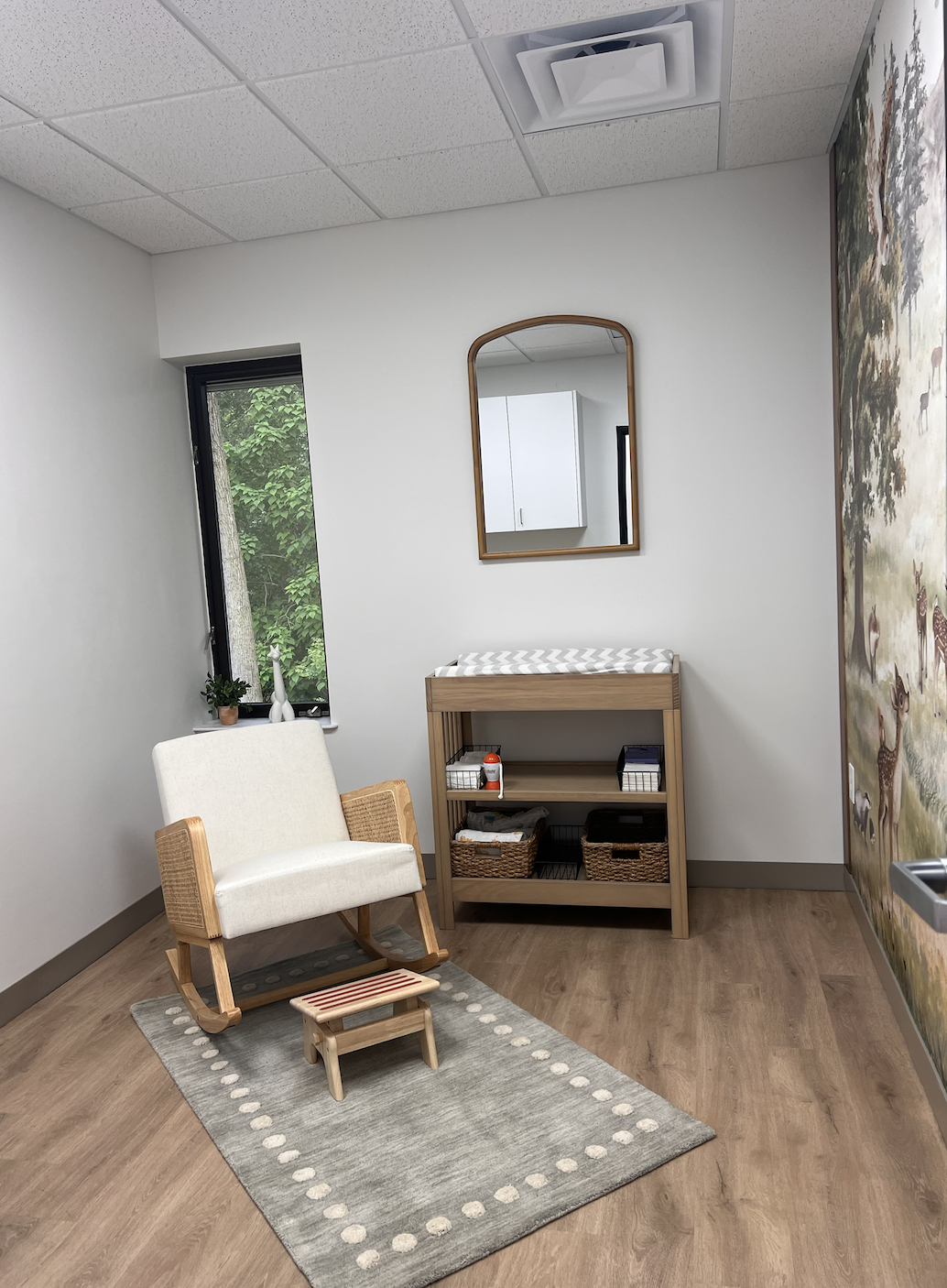

Dr. Kristina Palmer
DDS & Breath Baby Specialist

Susie
Lactation Counselor & Myofunctional Therapist

Katie
Tethered Tissue Care Coordinator
Contact Oak Bark Wellness
Ask a question or book an appointment below. We look forward to meeting you!
